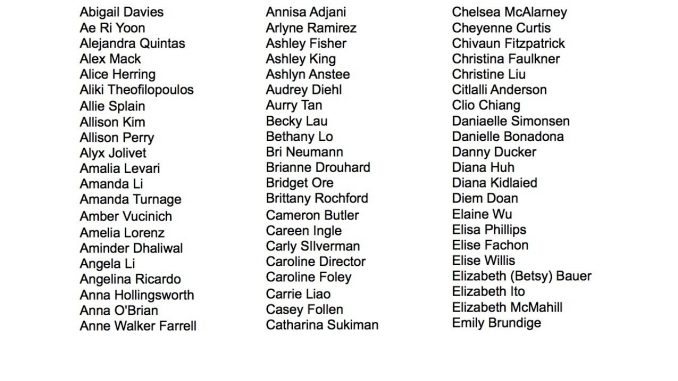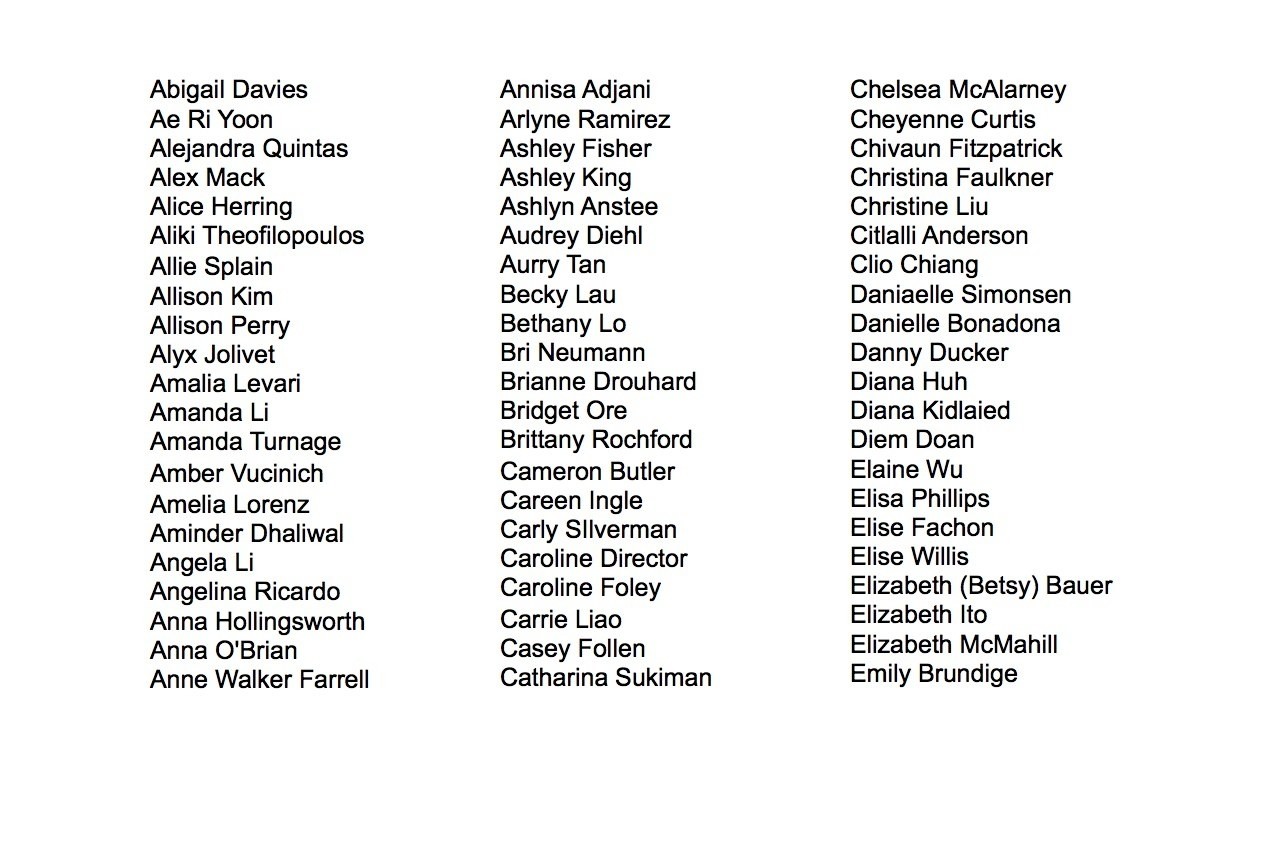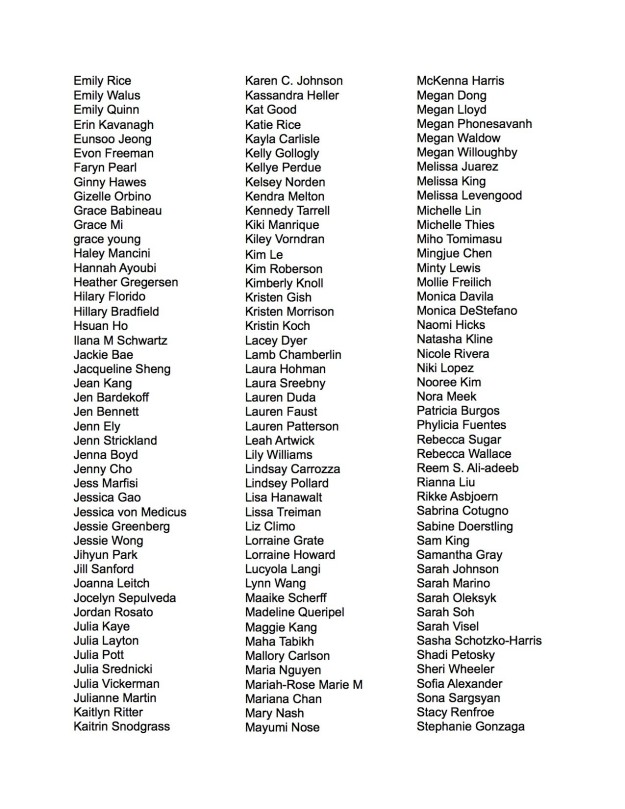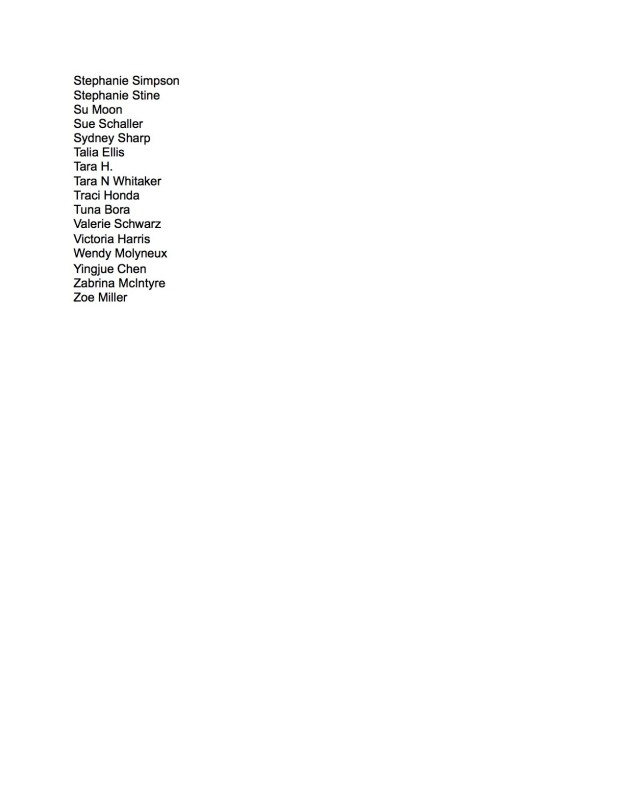
Jason Kempin / Getty Images
On Thursday, 217 women and gender nonconforming people in animation sent a letter to more than a dozen studios demanding an end to sexism and sexual harassment in the animation industry. Recipients included executives at Disney, Cartoon Network, Nickelodeon, DreamWorks Animation, Bento Box, OddBot, Paramount, Shadowmachine, Sony Pictures Animation, Stoopid Buddy, Titmouse, and Warner Bros.
Though there are very few women with creator credits on TV shows, several among that small group endorsed the letter’s message — among them are Rebecca Sugar, the creator of Steven Universe; Shadi Petosky, the creator of Danger & Eggs; and Lauren Faust, the creator of My Little Pony: Friendship Is Magic. There are also multiple Emmy winners on the list.
The letter began to take shape last week after a swell of harassment stories were exchanged publicly and privately, moving the group into collective action. In the letter, they explicitly call for clear and uniformly enforced sexual harassment policies from studios; stronger action from their union against harassers; and more support from their male colleagues. “This abuse has got to stop,” they said.
Women have long noted the lack of gender equity in animation, a fact that is often overlooked both within the industry and by mainstream media outlets. In December, for example, the Hollywood Reporter infamously published a roundtable discussion “on avoiding ethnic stereotypes and how to ‘break the mold’ of princesses” featuring Seth Rogen and six other white men: The article was met with widespread derision online and eyerolls offline.
Harassment in particular has received even less attention: As the letter points out, it was only in the last few weeks that conversations about harassment started to happen more openly, and the letter writers were “struck by the pervasiveness of the problem.”
In interviews with more than two dozen women in the industry this year, women repeatedly told BuzzFeed News that animation is “a small industry” and thus they feared that speaking out about gender-based mistreatment would negatively affect their careers. In these interviews — which were conducted before the sexual misconduct allegations against Harvey Weinstein prompted a reckoning among women in the industry — a majority of women said they had a suspicion that nothing would come of any allegation they made about harassment; many said they worried making such a report would make them seem “difficult” or “not fun.”
But this letter seems to mark a shift. More than 200 women and gender nonconforming people have now publicly called an end to their silence.
Read the letter in full:
An Open Letter to the Animation Community
We, the women and gender non-conforming people of the animation community, would like to address and highlight the pervasive problem of sexism and sexual harassment in our business. We write this letter with the hope that change is possible, and ask that you listen to our stories and then make every effort to bring a real and lasting change to the culture of animation studios.
In the wake of the Harvey Weinstein scandal, many of the women who work in animation have begun discussing more openly issues that we have dealt with quietly throughout our careers. As we came together to share our stories of sexism, sexual harassment and, in some cases, sexual assault, we were struck by the pervasiveness of the problem. Every one of us has a story to share, from tossed-off comments about our body parts that were framed as “jokes” to women being cornered in dark rooms by male colleagues to criminal assault.
Our business has always been male-dominated. Women make up only 23% of union employees, so it’s no surprise that problems with sexism and sexual harassment exist. Sexual harassment and assault are widespread issues that primarily affect women, with women of color, members of the LGBTQ+ community and other marginalized groups affected at an even greater rate.
As more women have entered the animation workforce, it seems that some men have not embraced this change. They still frequently make crass sexual remarks that make it clear women are not welcome on their crews. Some have pressed colleagues for romantic or sexual relationships, despite our clear disinterest. And some have seen the entrance of more women into the industry as an opportunity to exploit and victimize younger workers on their crews who are looking for mentorship. In addition, when sexual predators are caught at one workplace, they seem to easily find a job at another studio, sometimes even following their victims from job to job. We are tired of relying on whisper networks to know who isn’t safe to meet with alone. We want our supervisors to protect us from harassment and assault.
This abuse has got to stop.
The signatories of this letter demand that you take sexual harassment seriously. We ask that:
1. Every studio puts in place clear and enforceable sexual harassment policies and takes every report seriously. It must be clear to studio leadership, including producers, that, no matter who the abuser is, they must investigate every report or face consequences themselves.
2. The Animation Guild add language in our constitution that states that it can “censure, fine, suspend or expel any member of the guild who shall, in the opinion of the Executive Board, be found guilty of any act, omission, or conduct which is prejudicial to the welfare of the guild.” To craft and support the new language, we ask that an Anti-Harassment and Discrimination Committee be created to help educate and prevent future occurrences.
3. Our male colleagues start speaking up and standing up for us. When their co-workers make sexist remarks, or when they see sexual harassment happening, we expect them to say something. Stop making excuses for bad behavior in your friends and co-workers, and tell them what they are doing is wrong.
It has not been easy for us to share our stories with each other. Many of us were afraid because our victimizers are powerful or well-liked. Others were worried that if they came forward it would affect their careers. Some of us have come forward in the past, only to have our concerns brushed aside, or for our supervisors to tell us “he’s just from a different era.” All of us are saddened and disheartened to hear how widespread the problem of sexual harassment still is in the animation industry, and how many of our friends had been suffering in secret.
It is with this in mind that we resolve to do everything we can to prevent anyone else from being victimized. We are united in our mission to wipe out sexual harassment in the animation industry, and we will no longer be silent.
Signed,




